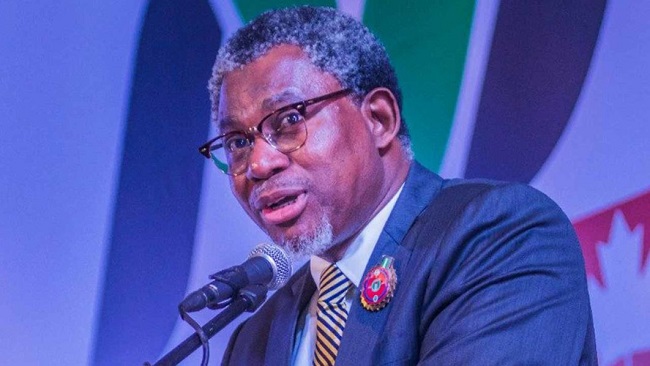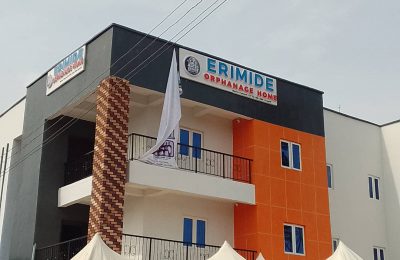

By: Collins Nnabuife – Abuja
The Minister of Mines and Steel Development, Olamilekan Adegbite has advocated the needs for industries to invest in ensuring that water bodies are not contaminated during mining activities.

According to him, if contamination is inevitable, appropriate measures should be taken to treat the water by the industry.
The Minister, who was represented by an official from the Ministry, Engr Magashi stated this at the Report Launch/Dissemination of Meeting for Diagnostic Report on Nigeria’s Mining Sector Governance Landscape and Prospect, organized by the Ford Foundation and Nigerian Economic Summit Group.
He said mining is a major economic activity in Nigeria and its operations whether small or large scale is inherently disruptive to the environment, producing enormous quantities of waste.
The Minister said mining activities deteriorate water quality and quantity day-by-day, thus protecting water quality is a priority environmental challenge at mining and mineral processing sites.
“The most significant impact of mining is its effects on water resources. The impact of mining on surface and groundwater are amongst others due to spill, erosion, and segmentation, acid mine, drainage, and disturbance of hydrological cycle.
“Acid mining drainage is considered one of mine’s most serious threats in water resources. A mine with acid drainage has the potential for long term devastation impacting rivers.
He, therefore, added that “industries must invest to ensure that water is not contaminated, and when contamination does occur, they should invest in the treatment and containment within appropriate reservoirs, pipelines, canals and other storage facilities.
“Mining industries should be encouraged to adopt practices and technologies which are environmentally friendly”.
The Director Policy Innovation Centre at NESG, Dr Osasuyi Dirisu who spoke on gender issues in the mining sector, said male dominated with limited participation of women at all levels.
She said marginalization and segregation of women creates conditions for sexual exploitation and violence, and inequalities are structural as policies affect men and women differently.
Dirisu said in Nigeria, although the government and gender-focused agencies have made efforts towards promoting gender equality across sectors, wide gender gaps still persists – including in the mining sector.
She said this is due in part to gender stereotypes which introduce preconceptions about attributes of the traditional roles that are meant to be possessed by or performed by women and men.
These issues, according to her, deepen poverty, exacerbate inequalities and threaten sustainable development following decommissioning of mines, stating that women in mining communities have limited access to land rights, mining licenses or financing schemes.
“They are also constrained by restrictions in mobility due to domestic responsibilities consequently undermining their economic security. Women, children, persons with disabilities and other vulnerable groups are negatively impacted by the mining sector.
“They suffer both as stakeholders (employees, provision of support services) in the sector and as inhabitants of mining communities (damage to community assets and water). They are disproportionately affected by health and safety problems, prostitution, substance misuse, crime, damage to farmlands, environmental degradation”, she added.
The Secretary Miners Association of Nigeria, Mr Dele Ayankele in his address, said this is a time that the world is transitioning to green energy and Nigeria has all that it takes that the whole world is looking for in terms of this transition.
“This meeting should be appreciated, and I also think that this will move us forward and complement all the efforts that the Ministry of Mines and steel development has been making in ensuring that the mining sector plays its role and delivers its mandate”, he added.
READ ALSO FROM NIGERIAN TRIBUNE








